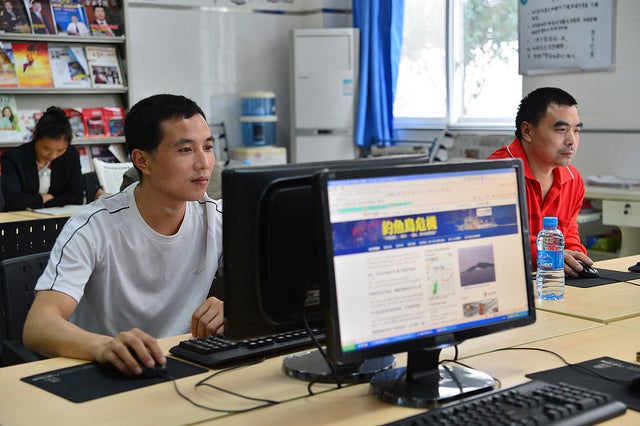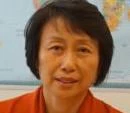
Massive Open Online Courses (MOOCs) refer to any online learning or use of education technologies. In China, a country of 1.4 billion people, these are growing.
The Chinese government expects MOOCs to bring “revolutionary” change to the education system by reducing inequity in quality of education between urban and rural schools and by sharing the best teaching resources. One of the government’s goals is to train 13 million k-12 (“k-12” is the sum of primary and secondary school years) teachers on education technology skills in the next five years through MOOCs. Yes, you read it correctly, 13 million teachers.
Earlier this month, I visited Beijing for a Symposium on Education Technologies and Management Information System co-organized by the World Bank Education Global Practice and Peking University’s China Institute for Educational Finance Research (CiEFR). The themes of the symposium were MOOCs, online learning, and educational entrepreneurship in China.
Major universities, including Peking University and Beijing Normal University, have “MOOC projects” exploring ways to take advantage of technologies in teaching and learning. A few recognized potentials for using MOOCs include sharing excellent teaching lessons among universities, reaching out-of school youth for tertiary education, and improving quality of teaching at their own universities. Many universities have opened their own online courses and are using edX and Coursera to disseminate them.
The online education market is big and growing in an unprecedented way. According to the latest shared information from the Symposium, the online education market in China will reach US$20 billion this year. Between 2013 and 2014, the Chinese online education market increased 700%, compared to a 9% increase in the US during the same period of time. The private online education business mainly focuses on pre-school, primary and secondary education, providing test preparation, language classes, and skills updates for employment.
Linking technologies and skills development
The Chinese are keen to learn cutting-edge knowledge in development, especially young entrepreneurs and start-ups in online learning.
This was in full display In Zhongguancun, China’s Silicon Valley, where we visited the Chuangke Incubator. With a mission to help young people develop IT and entrepreneurial skills, the company now has more than 100 young people in the program. After a few months of learning, they will “graduate” and run their own businesses.
One of the successful businesses from Chuangke is Jike Xueyuan, an online training platform, helping young people obtain and update their skills and find jobs in the IT area. In over two years, Jike has 800,000 learners registered in its online learning program, which has successfully addressed the shortage of supply on skills training for IT industries.
Sunshine Library is a program committed to reaching students from rural and disadvantaged areas. It uses technologies to support teachers, provides multi-media materials, introduces modern teaching methods, and designs core learning software to bridge the gaps in quality between urban and rural schools.
With the complexity and scale of China, the government is strongly pushing the use of technologies to improve quality, access and equity of education, while encouraging private entrepreneurs and civil society to provide skills training for employment, skills upgrade as well as outreach to rural children.
These efforts affect who the learners are, who the providers are, what we learn, where to learn, and how to learn. Thus, in my view, countries should keep an open mind and explore different means to reach all segments of the population. Information technologies is one of those options and has the potential to make learning for all a reality.
For more information about the World Bank Group's work on ICT and education, visit Edutech Blog.
Follow the World Bank Group Education team on Twitter @wbg_education


Join the Conversation